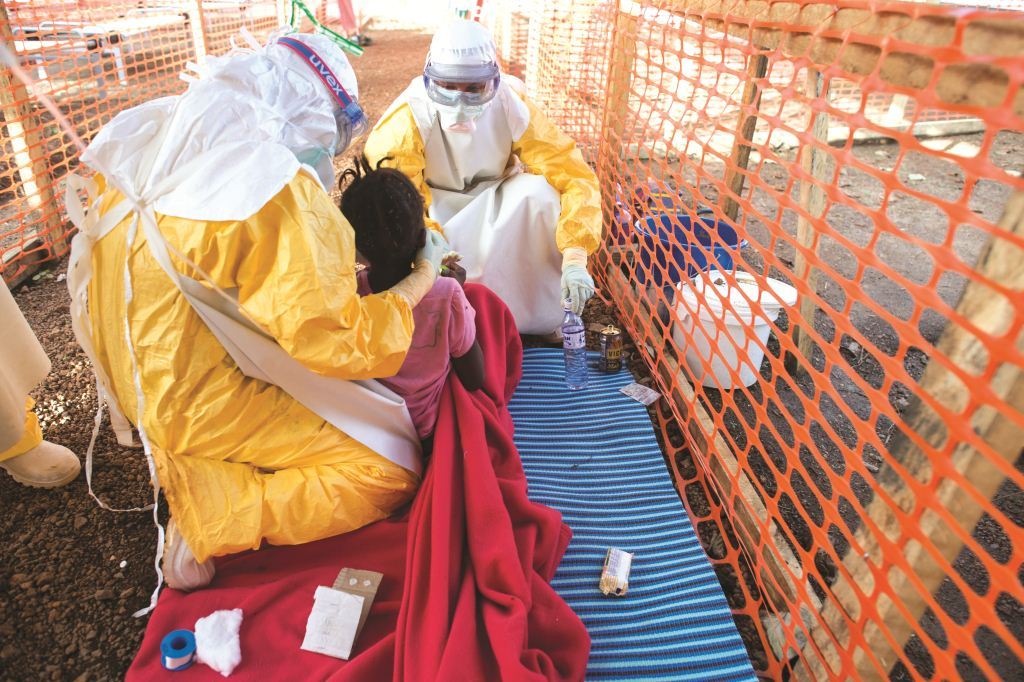The Ebola virus is spreading across Africa, taking fear with it.
“They say Ebola has no cure. The unknown has arrived. Nobody knows how to deal with this Ebola, not even the government!” John-Thomas Mensah, an Accra-based taxi driver tells FORBES AFRICA in the Ghanaian capital.
The Ebola scourge has spawned new social rules, with people being told they are not allowed to hug or shake hands. New superstitions have arisen, with some believing that drinking or bathing with salty water and eating the West African plant, bitter kola, will treat the disease. Some businesses are cashing in on the rush for disinfectants, soaps and hand sanitizers.
In August, the World Health Organization (WHO) declared the West Africa Ebola outbreak a public health emergency. It triggered global alarm as countries stepped up precautions and testing. It is the largest Ebola outbreak to date and began in Guinea in March. Liberia has been the worst hit, with 70% of the casualties. Ebola has infected nearly 5,400 and claimed 2,630 lives, mostly in Guinea, Liberia and Sierra Leone. Nigeria recorded eight deaths as at the end of August.
Beyond medicine, the epidemic has dampened business and left the informal economy, that fuels West Africa’s cross-border commerce, in a coma. Millions of West Africans are traveling traders and workers who crisscross the region’s porous borders for their daily bread.
Loading...
Nigeria, which accounts for around 168 million of West Africa’s 260 million people, has not shut its borders, but almost every other country in the region has stopped border traffic, all in a bid to restrict the spread of Ebola. In late September, Nigeria declared itself Ebola-free.
Airlines discontinued flights to and from Liberia, Sierra Leone, Guinea and neighboring countries. Freight rates to West Africa are expected to rise as ship owners avoiding the region are choosing to berth at alternative ports. In mid-August, a Chinese-flagged ship heading out of Sierra Leone to Cape Verde had its crew quarantined in Sao Vicente.
The Ebola scare has also reared its ugly head in South Africa. The most worrying was a patient in August who displayed low risk symptoms and was admitted to the Charlotte Maxeke Johannesburg Academic Hospital as a precaution. Luckily, the patient tested negative for Ebola at the special diseases ward at the hospital.
“The patient is in isolation and there is no need for the general public to panic. He will not be put in contact with another patient. He is in isolation, in a special ward that deals with hemorrhagic fever,” says Joe Maila, spokesperson for the Ministry of Health.
Eleven hospitals across South Africa were issued with protective gear in readiness for any possible outbreak, says Maila.
East Africa is also taking precautions.
The health sector there is poorly funded and all member states agree that they need to coordinate efforts to keep Ebola at bay. Little of this is evident on the ground.
Uganda has suffered from Ebola in the past and claims it is well prepared. Together with Rwanda and Burundi, Uganda borders the Democratic Republic of Congo, which has confirmed strains of the virus.
The region is on high alert and any slight indication of the virus in these countries may lead to the type of isolation experienced in West Africa. Business, including East Africa’s fledging oil and gas sector, will be hit.
WHO classified Kenya as a high-risk area because of the number of flights from Jomo Kenyatta International Airport to the infected countries. Kenya Airways, the third largest carrier on the continent, is feeling the pinch after suspending some of its flights to West Africa. RwandAir and Ethiopian Airways are yet to follow suit but promise stringent surveillance.
Help has come from far and near. The United States’ (US) Centers for Disease Control and Prevention (CDC) has about 60 disease detectives and other health experts in the region. The US Agency for International Development (USAID) has reportedly committed $14.5 million. The Wellcome Trust and Britain’s Department for International Development (DFID) have also announced a joint $10.8-million emergency research fund.
Africa’s richest man, Aliko Dangote, through his Dangote Foundation, has given $3.2 million to the Ebola Emergency Operation Centre in Lagos, where the nation’s first case of Ebola was found in Liberian-American national Patrick Sawyer who died in a Lagos hospital four days after arriving from Liberia.
Despite these measures, and assurances by the WHO and local authorities, sections of the international community continue to fear that Ebola could spread across the vast African continent. With multinationals placing travel restrictions to West Africa, trips to Africa are either being postponed or canceled. The tourism sector in East and Southern Africa has been the hardest hit.
Ebola is not going away in a hurry.
Loading...
